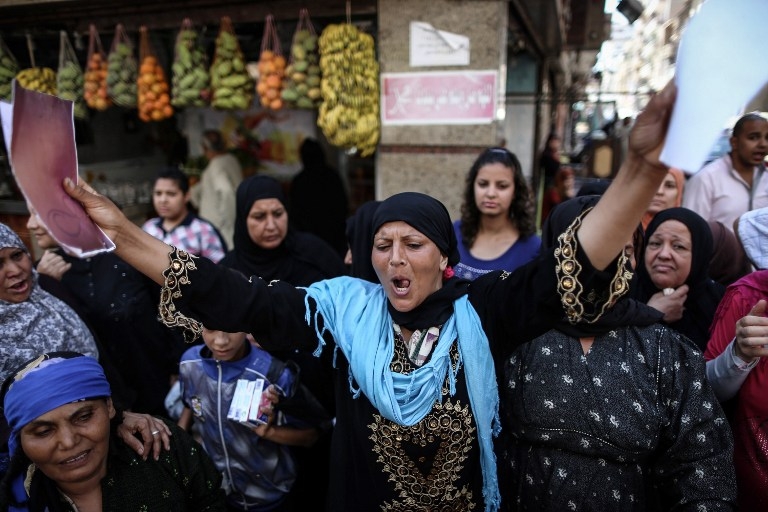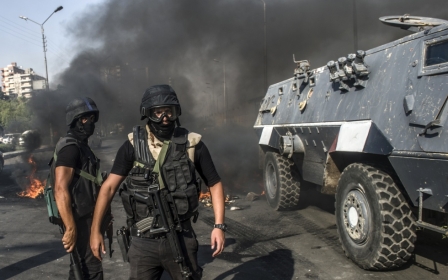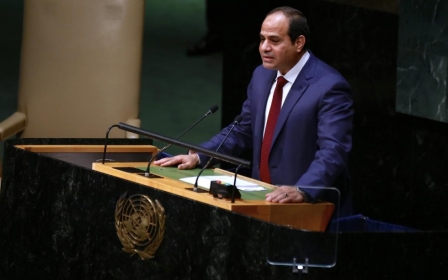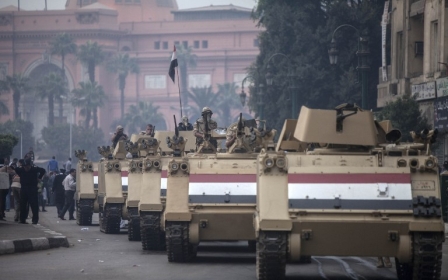In Egypt, where café chatter can get you arrested

Sara Khorshid and her younger sister were in a café near downtown Cairo last week discussing the political situation in Egypt with a French journalist when a woman at a nearby table stood up, grabbed her jacket off the back of a chair, and stormed out.
“You’re ruining the country!” the woman yelled at Khorshid before barging out the door.
Khorshid, a 33-year-old journalist who writes for the Huffington Post and who took part in protests against former president Hosni Mubarak in 2011, was taken aback by the woman’s outburst but not completely surprised.
Emotions have run high in Egypt since the military ousted President Mohamed Morsi after mass protests in 2013 and installed a government that banned his Muslim Brotherhood organisation and launched a widespread crackdown on political dissidents.
“People are on edge,” Khorshid told the Middle East Eye. “It’s got to the point where discussing politics in public or criticising the government is seen as distasteful, irresponsible even.”
When Khorshid, who is visibly pregnant, left the café half an hour later a plain-clothed man holding a walkie-talkie confronted her.
“Give me your ID,” he demanded.
Over a nearly two-hour interrogation he asked her: "What do you do for a living? Where did you study? How do you know him?" pointing to the French journalist Alain Gresh, editor of the French newspaper Le Monde diplomatique.
“My apologies,” the officer later said, abruptly giving Khorshid back her ID. “You’re free to go now.”
Khorshid was overwhelmed and, initially, chose not to talk to the media but has recently opened up, recounting the ordeal in a New York Times op-ed.
“What shocked me was not that I was held by the police; it’s the fact that a fellow Egyptian, a woman I’ve never met and who I had nothing to do with, felt the need to denounce me simply for discussing politics,” said Khorshid.
“Sadly this is the new norm in Egypt; people doubting others and suspecting each other.”
In recent weeks, a number of similar incidents - citizens turning other citizens into the authorities - have occurred.
In early November Egyptian activist, Abdel Rahman Zaidan, watched as a middle-aged woman boarded a bus in Cairo and started loudly denouncing Egypt’s president, Abdul Fatah al-Sisi. When a fellow passenger joined the woman in criticising the president she hopped off and turned him in, telling police he was a “Muslim Brotherhood terrorist.”
When newspapers last week reported that an Egyptian undergraduate had been arrested outside Cairo University for possessing a copy of George Orwell’s book Nineteen 1984, activists seized upon the story, likening Egypt’s return to strongman rule to the book’s plot.
Khorshid s distrust has been whipped up by stories run in state-owned media about Egypt falling prey to terrorism and foreign plots.
“The media says we are at war with terrorists, that no one should criticize the government because this is not a priority now; we should back the government and stay silent about anything that we don’t like; empower them in their fight against terror rather than doubt their capabilities,” said Khorshid.
“I haven’t decided yet," said Khorshid, when asked if she was worried about discussing politics in public in future.
"I’m still perplexed over what happened. In normal countries, I assume people get arrested when they break a law. Here you can always be at the risk of getting arrested for no reason."
New MEE newsletter: Jerusalem Dispatch
Sign up to get the latest insights and analysis on Israel-Palestine, alongside Turkey Unpacked and other MEE newsletters
Middle East Eye delivers independent and unrivalled coverage and analysis of the Middle East, North Africa and beyond. To learn more about republishing this content and the associated fees, please fill out this form. More about MEE can be found here.




